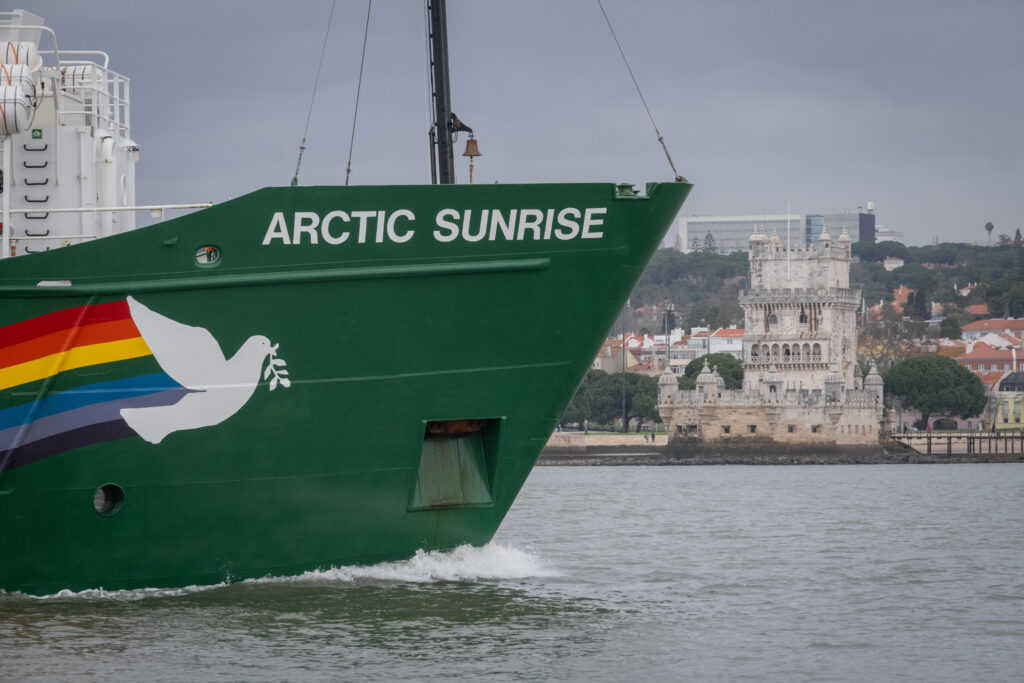
Chefs on Fire. In this festival, leftover food is transformed into energy
Here comes another edition of Chefs on Fire, one of the most important gastronomic festivals in the country. In addition to the sustainability actions that
We didn't find any happenings mapped to your criteria.
Try the traditional search to find articles not yet mapped with RUA.
We didn't find any happenings mapped to your criteria.
Try the traditional search to find articles not yet mapped with RUA.
We didn't find any happenings mapped to your criteria.
Try the traditional search to find articles not yet mapped with RUA.
We didn't find any happenings mapped to your criteria.
Try the traditional search to find articles not yet mapped with RUA.
Greenpeace opens office in Portugal and brings the icebreaker Artic Sunrise. The organization’s focus will be on fighting fires and protecting biodiversity, especially the oceans.
Greenpeace is physically established in Portugal for the first time, with a permanent team. The organization has had an occasional presence in the country for more than 15 years, through specific actions and campaigns, but it is at this critical moment – when almost seven of the nine planetary boundaries have already been crossed and a model of production and consumption threatens life on the planet – that Greenpeace has decided to integrate Portugal into its global network of more than 55 countries.
The launch of Greenpeace Portugal took place this Monday, February 17, on board the organization’s iconic icebreaker, the Arctic Sunrise, and was attended by the director of Greenpeace Portugal, Toni Melajoki Roseiro, and the president of the Greenpeace International Board, Jo Dufay. The ship is in Lisbon to celebrate the creation of the new team, hold political meetings and strengthen strategic alliances.

With a permanent presence in the country as of today, Greenpeace intends to focus on the main socio-environmental challenges. “There are urgent changes that need to happen in Portugal and around the world. Greenpeace wants to contribute with concrete proposals for these advances and channel the indignation and voice of Portuguese society, historically concerned and committed to defending its biodiversity,” said Jo Dufay, Chairman of the Board of Greenpeace International.
As part of the Climate Emergency, with Portugal being the country in the European Union with the highest percentage of burnt area, during this first year the organization will focus on in-depth research work to present concrete proposals on forestry policies and alternatives for the entire management cycle. We will address the threat, vulnerability and exposure posed by fires, which are increasingly aggravated by climate change.
Within the scope of biodiversity protection, with an international focus, the organization will work to protect the oceans, both in national and international waters. Greenpeace’s first demand of the Portuguese government will be the ratification of the United Nations Oceans Treaty. Four European countries, including Spain, have already announced this, and Portugal – the country with the largest maritime zone in Europe – must not be left behind. In addition, Greenpeace will demand that Portugal supports the declaration of marine protected areas on the high seas, in order to reach the target of 30% protection by 2030.
Portugal was the first European country to announce a ban on deep sea mining in its territorial waters by 2050. Greenpeace will also demand that the Portuguese government lead the ISA (International Seabed Authority) negotiations to expand this ban to international waters.


Here comes another edition of Chefs on Fire, one of the most important gastronomic festivals in the country. In addition to the sustainability actions that

From July 31st to August 4th there will be another edition of the Tradidanças festival, the one that gets everyone of all ages dancing for

One of the aims of the University of Coimbra’s project is to create a “Refuge House”, an infrastructure with a forest fire risk so low

This article addresses an action that promotes the adoption of urgent measures to fight climate change and its impacts. SDG 13 also aims to improve education on climate change mitigation and impact reduction.
 To discover businesses that are actively working to contribute to this Sustainable Development Goal, click here.
To discover businesses that are actively working to contribute to this Sustainable Development Goal, click here. To read news, interviews or tips related to this Goal, click here.
To read news, interviews or tips related to this Goal, click here.Esta publicação também está disponível em:
![]() Português (Portuguese (Portugal))
Português (Portuguese (Portugal))

